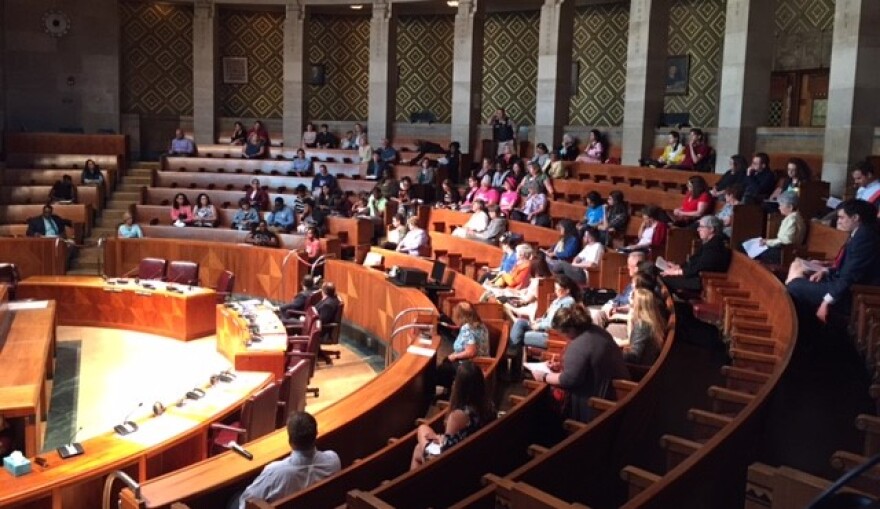The Buffalo Common Council is again looking at a gender equality law for the city and city government, with a crowded public hearing Tuesday night in the Council Chambers.
It is called CEDAW, based upon the Convention on the Elimination of All Forms of Discrimination Against Women adopted by the United Nations General Assembly in 1979. If the law, long under discussion, were passed in Buffalo, it would require active measures to eliminate gender discrimination in city government.
That would include annual gender analyses of operations to make sure city policies benefit everyone equally. That also would offer a way to end pay differences between men and women, especially women of color.
It might also change attitudes. Orlando Dickson spoke at the public hearing about overhearing his four-year-old daughter talking to her dolls and did not like what he heard.
"The daddies go out and work and the mommies stay home and take care of the baby," Dickson said. "And I told her, 'That's not the way that always work. Sometimes it's true.' And she said, 'No, because mommies can't do the same things as dads.' When I heard her say that, it like broke my heart that she thought that was true."
Marcia Bandes came up from Pittsburgh to says her city has this equality structure and urged Buffalo to do it also.
"Gender inequity is systemic in our culture. We won't fix it by playing whack-a-mole," Bandes said. "Our Pittsburgh City Council recognized that we needed a systematic approach, a five-year plan to address it and the CEDAW framework provides that. Think of the CEDAW ordinance as the framework and the gender analysis that is required as the tool."
Pati Aine Guzinski said she thought things would change from when she tried to be a volunteer firefighter in the 1970s.

"The tokenism was rampant," Guzinski said. "As the token female, my mistakes were amplified and I felt isolated as an out group and I was clearly aware of repeated attempts to encapsulate me into a role which would not allow me to achieve the equal status as the male firefighters in my division."
Guzinski said she later saw some of the same attitude when she was a professional firefighter in the West and then when she returned to Western New York to be an EMT. She said few women can fight their way through opposition to be a firefighter or an EMT.
Several speakers told the hearing of incidents where they were forced to go along with that attitude, from bosses' comments and hiring to police pushing against arrests for sexual assaults. Many called for immediate action on the bill to put it into action.





